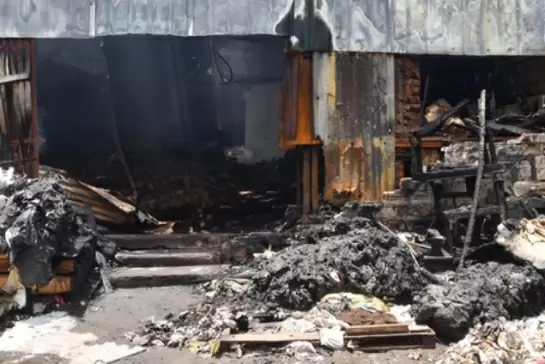Full steam ahead for Nepal-China railway project through Himalayas
13-June-2019
The much talked about Nepal-China railway line project has picked up pace as Beijing announced funding for a detailed feasibility study of the project, which many critics say reflects Chinas strong strategic and geopolitical engagement with the small Himalayan nation.
The $2.5 billion trans-Himalayan railway from Nepal's capital Kathmandu to Kerung on the Chinese side of the border will then link to the Tibetan plateau, travelling along some of the highest passes in the world. The joint project is considered extremely challenging due to the rugged topography of the Himalayas, Efe news reported.
The Chinese government has included the cross-border railway line as a project to be supported under its Belt and Road Initiative (BRI).
In the first phase, the railway line will link Kerung to Kathmandu and in the planned second phase it will extend to Lumbini, the birthplace of Buddha in the southern Terai region near the India border.
Nepal's Finance Ministry has allocated a $18 million grant from the Chinese government to prepare a detailed feasibility study of the project, Director-General of Department of Railways, Balram Mishra, told Efe news.
"The study will begin from the next fiscal year," he said, adding that the study was expected to be completed within a year and a half. After that, the total construction period will be seven years.
"Even preparing the detailed project report is an extreme task," he said.
The BRI, unveiled by Chinese President Xi Jinping in 2013 and seen as a modern Silk Road, aims to connect China with Asia, Europe and beyond through large-scale infrastructure projects.
The Nepal-China railway line, which seeks to penetrate the massive South Asian market via Nepal, is one of the most ambitious and difficult projects the two countries have worked on.
Nepal believes that completion of the project will enhance its connectivity with its northern neighbour, bringing an end to the landlocked country's dependence on India for trade.
According to a pre-feasibility report, the Kathmandu-Kerung railway line will span 72 km with 98.5 per cent of the section consisting of bridges and tunnels. The line's initial cost has been estimated at $2.5 billion.
Dr Posh Raj Pandey, Executive Chairman of South Asian NGO consortium South Asia Watch on Trade, Economics and Environment, said that given the current size of Nepal's economy of $30 billion and its resources, the project is "very big" to be able to afford.
"We need connectivity with China to increase trade, but still roadways are viable options," he said.
Nepal's total trade share with China is only 15 per cent and investing nearly $3 billion to build the railway is a big risk, he added.
"Nepal might fall into a debt trap if the project is built taking (out a) loan," he said, adding that the needs of the railway project could be reviewed after a decade.
China is also funding an international airport, highways, hydro power plants and a cement factory in Nepal. IANS
Mahagathbandhan Likely to Announce Tejashwi Yadav as CM Face Ahead of Bihar Polls
IndiGo Flight from Kolkata to Srinagar Makes Emergency Landing in Varanasi
Saudi Arabia Ends Kafala Sponsorship System, Benefiting 13 Million Foreign Workers
Satya Nadella’s Pay Soars to $96.5 Million in FY25 as Microsoft’s AI Boom Lifts Profits
Dalit Youth Abducted, Assaulted, and Forced to Drink Urine in Madhya Pradesh’s Bhind









